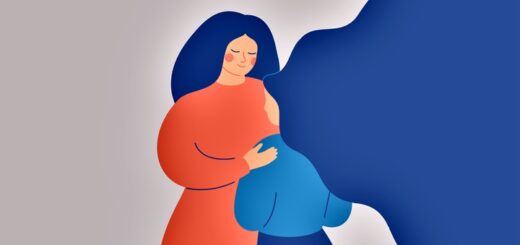At Christmas with young LGBT+ people kicked out by their parents in the name of God
Reflections* by Carl Siciliano** published on the website Outreach (USA) on December 17, 2024, freely translated by Luigi and Valeria de La Tenda di Gionata
Over the Christmas holidays of 1994, I first met Ali Forney, a homeless non-binary black teenager who would transform my life.
I had just become director of SafeSpace, a day shelter for homeless youth based in Times Square (New York). As you can read in my book Making Room, during the first weeks of work I discovered with anguish that none of the few shelters for homeless teenagers in the city remained open for Christmas.
Unable to bear the thought of our young people being left out in the cold on this day of love and intimacy, my colleagues and I volunteered to keep our center open for half a day.
I had come to work for SafeSpace after a decade of serving the homeless. I am a gay Catholic and at the time I was struggling to reconcile my faith and sexual orientation, after experiencing homophobic rejection in Catholic circles. My service activity has always been founded on the belief that Christ is present in a particular way in the most needy. Knowing that a significant percentage of young people from SafeSpace was queer, I hoped that this new work could help me integrate aspects of my life that were seemingly in conflict with each other.
On Christmas morning we kicked off the party. We created decorations in the dining room with garlands and festoons, colored lights and flowers, and about twenty volunteers came to help us from the church next door. These new, enthusiastic and never-before-seen faces lined up behind steaming pots and trays, offering a feast of food, sweets and cakes, and giving the centre's staff the chance to sit and eat with the young people.
But the young people were unusually taciturn, intimidated by the many new people at the facility.
Meals were generally an occasion for merrymaking, with the kids calling each other from one side of the table to the other, causing endless bursts of laughter and teasing. But now Ali also spoke in a lower voice, without his usual boldness or his usual digs at others. Having witnessed this phenomenon on many other festive occasions after that time, I understood that their shyness is linked to adolescence.
Teenagers place great importance on how they are judged by others and generally feel terribly embarrassed if they are pitied. Homeless teens are no different. Being observed by a large crowd of unknown people gave our youth an acute awareness of their destitute condition.
Despite everything, in my first Christmas in SafeSpace, I was happy that the boys were sheltered for a few more hours, eating their fill in a context of human warmth and availability of food.
However, when three in the afternoon arrived and we were forced to close the center, it was a terrible thing. I ushered everyone into the hallway and watched Ali and everyone else walk out of our heated building and into the snow-filled streets. Later, after I locked the doors, set the alarm, and arrived at my mother's house on Twenty-fourth Street, I couldn't get the boys out of my mind.
We had given them backpacks and gloves and hats and scarves as Christmas presents, and they were standing there in the lobby, putting their scarves on and covering their heads and putting on their gloves. Then they were out on the road, most of them with nowhere to go, their breath forming frozen clouds as they moved out into the freezing air.
One thing that made me deeply uncomfortable was the fact that most of the kids present that day were queer. On normal days, about a third of the youth at our shelter were LGBTQ.
But Christmas is a day when many parents or extended families take their homeless kids in for the day. When I saw that most of the kids who were with us that day were LGBTQ, I wanted to cry.
Even in this celebration of family intimacy, queer youth were not welcomed into their homes. Seeing those unwanted kids left shivering in the streets, I understood how powerful the power of homophobia and transphobia is to sever ties between parents and their queer children.
My first few weeks at SafeSpace they were a crash course in understanding the phenomenon of young homeless people. What a nightmare those kids were living, alone, hungry, with no place to stay, abandoned by their parents.
Most parents are driven to nurture and protect their children. When I tried to understand why the parents of the young people in our care were unable to do this, I found that it was usually due to some pathology. Many of our young people had parents who suffered from mental illness and/or addictions.
But many others had parents whose homophobia and transphobia led them to reject their children. Seen from the point of view of those who care about the well-being of children, homophobia could not fail to be recognized as a pathology that causes unspeakable suffering in children.
What I saw was heartbreaking, not only as an operator, but also as a Catholic. Most queer boys and girls were left out on that cold Christmas night because of their parents' religious beliefs.
I am also a follower of the same faith. Yet, we treated people very differently. Those boys had been abandoned in the name of God. Surrendered on the holy day when we celebrate how God tenderly embraced humanity, in all its vulnerability and fragility, with the birth of Jesus.
That evening, as I sat with my family, I thought of Ali and the other boys, alone on the icy streets. A verse from Silent Night, my favorite Christmas carol, kept ringing in my mind: “Silent night! Holy night! Son of God, pure light of love".
It was as if Ali and the other LGBTQ kids were deemed unworthy of their parents' care, unworthy of living in their homes, unworthy of the most basic human mercy, unworthy of their place «in the pure light of love".
And a prayer began to arise in my heart:
C.that I can find a way
to testify that LGBTQ youth are worthy
of the love that goes to every sheet.
Because every child is born to be loved.
The truth of God's love,
limitless and welcoming,
intended for each of us,
it is certainly the deepest meaning of the mystery of Christmas.
*Excerpt from “Making Room: Three Decades of Fighting for Beds, Belonging, and a Safe Place for LGBTQ Youth” by Carl Siciliano, published by Penguin Random House, 2024.
**Carl Siciliano is the founder and former executive director ofAli Forney Center, the nation's largest shelter program for homeless LGBTQ youth. It was awarded as Champion of Change (Champion of Change) from the White House in 2012.
Original text: How serving homeless LGBTQ youth changed my understanding of Christmas






